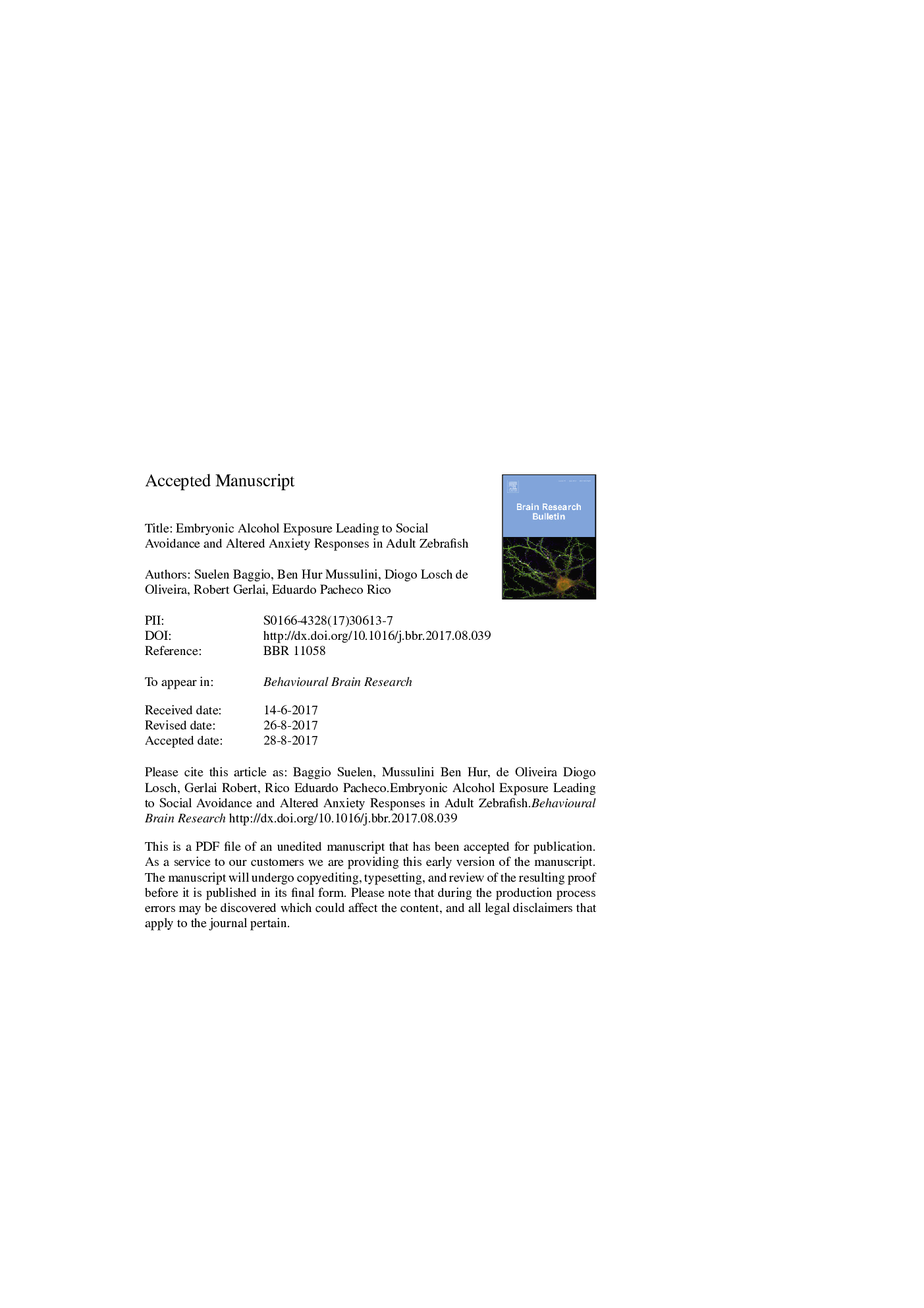| Article ID | Journal | Published Year | Pages | File Type |
|---|---|---|---|---|
| 8837651 | Behavioural Brain Research | 2018 | 32 Pages |
Abstract
Fetal Alcohol Spectrum Disorders (FASD) is a syndrome characterized by neurological and behavioral impairments. A recently discovered hallmark of FASD is impaired social behavior. Avoidance of social interaction typical of FASD may be the result of increased anxiety. Previously, the zebrafish was successfully used to model embryonic alcohol induced social abnormalities. Here, we analyzed both anxiety and social responses using a zebrafish FASD model, in adult fish. We exposed zebrafish embryos to low concentrations of ethanol (0.1%; 0.25%; 0.5% and 1% v/v) for 2Â h at, 24Â h post-fertilization, to mimic the most prevalent milder FASD cases, and investigated the ensuing alterations in adult, 4-month-old, zebrafish. We studied social interaction in the social preference task and anxiety in the novel tank task. We observed an ethanol dose dependent reduction of time spend in the conspecific zone compared to control, corroborating prior findings. We also found significant changes in the novel tank (e.g. increased bottom dwell time, increased distance to top) suggesting elevated anxiety to control, but we also found, using an anxiolytic drug buspirone, that reduction of anxiety is associated with reduced shoaling. Our results confirm that embryonic alcohol exposure disrupts social behavior, and also show that its effects on anxiety related phenotypes may be genotype, alcohol administration method, experimental procedure and test-context dependent.
Keywords
Related Topics
Life Sciences
Neuroscience
Behavioral Neuroscience
Authors
Suelen Baggio, Ben Hur Mussulini, Diogo Losch de Oliveira, Robert Gerlai, Eduardo Pacheco Rico,
